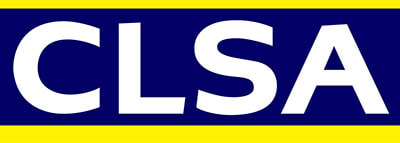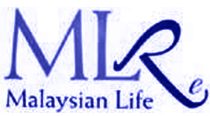|
As a Neuro-linguistic Programming Master Trainer who has been unleashing the leader in many of my clients, I have to say it’s easy to get in touch with this part of yourself.
The mind that drives self-leadership requires firstly, an understanding of your identity; who you are. The intimate settings that make up how you store information daily, preferences in communication and most importantly, your decisions and responses. This is the mind you need to know! In his landmark book Emotional Intelligence, Daniel Goleman detailed many aspects of the emotional self. Does it mean we have to get “emotional” to release negative emotions within us? NO! It means getting in touch with your emotions. As you feel, you go deeper into knowing where that feeling is stored in your body. This knowing is of great advantage, for your body will signal back when it needs to;
Imagine if you were so minutely aware of little nuances and feelings in your body? This is the fundamental building block of tapping into intuition and the very basis of self-leadership. The leader who “knows” when making a decision that it is a right one because it resonates, is one who is connected to his/her emotional self. At school we learnt academics to a large extent – theory that emanated from logic and reasoning. Data-driven styles that encouraged us to be in our head rather than our body. This has disconnected human beings and the very reason so many suffer mental health issues. As an ex-banker and corporate lady who worked in a myriad of fields including consulting, I reinvented myself to learn about the superior mind that most people are unaware of. Process-driven with easy access via the five senses, today I “know” this turns people around from negative to positive and creates passion in those wanting more. This is how self-leadership begins. I now have the tools to accelerate people to their deepest, unconscious self that connects the mind and body.
0 Comments
I met Thomas Leonard, referred to as the grandfather of coaching a year before he died. A blessing to the world and the most profound man I had ever met. I was on my journey to becoming a coach then.
Fast forward 20 years and here I am certifying people to be coaches, powerful beyond recognition, to help others heal at the deepest levels. How does one flip so fast from corporate lady to a behaviour change coach? There is only one answer – by working via the unconscious mind through the 5 senses. Easy enough to do as we all make pictures, sounds and feelings. This may sound simplistic and it is but there is a system to it. Underpinned by more than 100 processes that clear out cobwebs from the past and reinstall positives that create better outcomes. To be a powerful coach, one must first work through these processes for your outcomes. Feeling the buzz of success and seeing the leap to high performance, that is true testimony that NLP processes work. That is the signal that you are ready to coach others, be it on a personal level or in application to the workplace. How is it results are achieved fast? Weeding out content of an experience, NLP coaches work with the context, process and structure only. Hence the myth that you have to share your personal stories is gobbledegook! As soon as the problem statement is diagnosed, NLP coaches set on their way to take clients through a myriad of processes. One after another for an hour or so. Clients report this wonderful experience is like taking your brain to the gym. Magical results ensue as momentum re-aligns the internal self. More clients want a piece of it and the rest is history. What are the traits that coaches need? Fundamentally, intuition to know where the problem is for this fast tracks the coaching session for the client. Less talk more process-driven change and that to me is how corporates need to build their infrastructure of coaches. Eliminate the need for managers as team members gather self-change tools. Re-defining culture of the organisation with a workforce that is open to change, resilient and equipped with tools to conquer the landscape ahead. Isn’t that the vision that every organisation aspires to? This is indeed available at your doorstep. It is a mere decision away….. One of our clients recently said that he has observed greater engagement from his team as a result of taking concrete steps to be an effective mentor and coach.
Indeed, studies show that coaching and mentoring can increase engagement, job satisfaction and morale, teamwork and even bench strength. Granted, some of the best mentoring and coaching experiences occur informally over coffee, in corridors, and chance interactions during the course of work. However, in order for these interactions to have the potential to be powerful, people in the organisation need to have a coaching and mentoring mindset. This could shift your organisational culture. Imagine people having candid coaching conversations across your organisation. To make this happen, ensure your people listen and communicate skilfully in order to be the best colleagues they can be. Comprehensive coaching and mentoring programmes can sensitise them to the following: Identify opportunities for coaching Learn how to recognise when a person is open to coaching. Here are some cues you can listen for:
Help them master the basics of a good coaching conversation Coaching isn’t about providing solutions. It’s about uncovering answers through inquiry, and exploration. Coaches know that the following are absolutely fundamental to a productive interaction.
Ensure that mentoring programmes are structured Many organisations encourage mentorship without any structure. This results in interactions that often go nowhere. Start building a culture of mentorship by having structured programmes and providing guidance for fruitful mentoring relationships. Make it clear that mentoring topics could include discussions about purpose and skills, situational advice and giving and receiving constructive feedback. In the initial stages, you might have to hire experts to structure programmes and guides, but once a culture of mentoring takes hold, your people will need only minimal handholding. This post was co-written by Communications Strategist, Consultant and Coach, Bharati Jagdish. A client recently came to us looking especially weary. He was tired of having to motivate his employees. “Why can’t they be self-motivated?” he asked, frustrated.
Frankly, that is a question many leaders ask. However, instead of lamenting your employees lack of motivation, take steps to solve the problem. If a large number of your employees are waiting for your cue to perform better you probably have unresolved fundamental issues. Moreover, you’re probably suffering from burnout from having to constantly propel your employees to action while managing other responsibilities. Clearly, this makes for an unhealthy work environment. The solution lies in going back to basics. Start with these steps: Elevate your employees’ mental states for purposeful execution of roles Ask yourself why your employees are unmotivated. Chances are, they don’t feel as if they have a stake in the organisation’s success. This requires you to discover each person’s career objectives and aspirations. Once you’ve identified these, align them with the organisation’s goals. Being able to show congruence in terms of purpose will go a long way towards motivating employees and sustaining their motivation. Connecting individual purpose with organisational purpose takes skill. Firstly, break down your possibly lofty organisational purpose into actions that will make the purpose achievable. Too abstract a purpose can cause people to disengage. Secondly, ask employees to think about the following questions:
Cultivate healthier professional relationships to engender psychological safety Many organisations engage in personality profiling, but most don’t use results from such tests constructively. The goal should be to meet people where they are, then take them on a journey to fulfil both their goals and the organisation’s goals. In order to meet people where they are, leaders have to be skilled at building rapport and listening, among other things. Do you allow your employees to speak honestly without repercussions? Do you allow them to make mistakes and learn from them without career-destroying consequences? Cultivating an environment where people feel psychologically safe not only elevates mental health and working relationships, but also performance. If people can be honest about problems, solving them becomes easier. They’ll feel like they have a stake in the organisation and can lead change even as individual contributors. Most of our clients tell us that their employees are no longer happy with managers who merely tell them what to do and by when. Instead, today’s more self-actualised employee is looking for direction and inspiration when it comes to crystallising purpose, setting goals and developing themselves professionally.
For this, you need coaches, not managers. According to this Fortune article, one company, Time Etc realised this, so they replaced all their managers with coaches, with a ratio of one coach per six employees. They had clear objectives. The coaches’ job was to help their employees be as productive as possible and, in doing so, achieve more. The coaches offer close mentoring and feedback, encourage employees to identify how they work best, and make sure they are offered training and support to develop professionally. In short, Time Etc says the focus is on empowering and supporting employees to find their own way forward. As a result, among other things, performance on key goals has improved by up to 20%. Wouldn’t you like this for your organisation? However, coaching requires different skills and abilities from traditional management. The good news is wherever a person is in the organisational hierarchy, he or she can be equipped with the necessary skills to be an effective coach to their team. Here’s a taste of what a good coach needs to take employees to the next level. The ability to create self-managed teams The organisation needs to take charge in skilling each manager with transferable tools for self-motivation and self-management. Working on self is imperative before the next step of teaching others in the team. Many coaching companies work at the level of the conscious mind whereas Neuro-linguistic Programming coaches work on a deeper unconscious level, sharing tools that have the potential to change the way a person instinctively operates. Many managers operate from control, but wouldn’t it be more powerful to come from trust? A mindset shift at this level requires a re-wiring of neurology which is easily delivered in the form of corporate training sessions. Fun to attend while receiving powerful tools, these are highly recommended as self-managed teams elevate the organisation to high performance. Once team members can and are trusted to manage themselves, managers can concentrate on becoming effective coaches, further improving organisational performance. A paradigm shift in terms of how they see their own roles The organisation and managers within have to be open to reconfiguring their role and value to the business. Don’t slip into your old manager ways and consider the job done. Organisations must equip managers with coaching skills. They need to be skilled at identifying opportunities for coaching and having productive coaching conversations. As they acquire the tools and practise their skills, it is almost inevitable that a paradigm shift will occur in how they perceive their role as coaches who enable others to perform at their best. This should lead to rewards for the coach-manager as well, motivating them to continue creating high performing teams. This post was co-written by Communications Strategist, Consultant and Coach, Bharati Jagdish. As you prepare for more organisational change in 2024, consider this: have you sufficiently cultivated a change mindset?
We’ve always advocated telling a compelling change story to explain the reasons and timing for the change, and to consistently paint an empowering vision of the future to get buy-in from teams. However, repeating the story and communicating consistently and transparently is only part of the equation. A crucial element that many organisations neglect is the need to equip each person with tools to independently manage and embrace the change. This requires uncovering each person’s motivations, concerns and challenges. It may seem like a long road to work with each individual but that is a myth. Training team leaders to be effective change coaches takes a matter of a few months. Cascading down the line, this approach has proven to make the change process exciting and even fun. Imagine your organisation thriving on a robust and sustainable change culture, not just one that lasts during a transition. Wouldn’t that be great? The process begins with these steps: Truly internalise the organisation’s Vision, Mission & Values Communicating and internalising an organisation’s vision, mission and values shouldn’t just involve senior leadership presenting information and directives on internal communication channels. Instead, use a collaborative approach to help employees see how the organisation’s vision, mission and values are congruent with their own career goals. While employees work purposefully to help the organisation succeed, they must be supported with the tools they need to not only execute the change, but also to meet their long-term career objectives and aspirations. Employees will feel like they truly have a stake in the organisation’s success. Moreover, they will feel a sense of belonging which would certainly help with talent retention. Install empowering beliefs Beliefs work as either accelerators or decelerators to success. They are installed from young and most people are unaware of the beliefs that drive them. Once uncovered, damaging beliefs can be debunked and replaced with new, empowering beliefs that augur well for change. You may find people who were averse to change before operating differently after such exercises. They become open to what’s ahead and ready to thrive in the new landscape. If done in a modular format, these training sessions only take up to six months to show exponential success. Money spent is easily recovered and organisations are left with a workforce that is trained for long-term evolution. Organisations that invest in such efforts are also likely to retain top talent more easily. Why? Because employees evolve from having a “no choice” mindset to feeling passionate and excited about their jobs. They end up actually embracing and loving transformation exercises. Ultimately, they are motivated to help the organisation succeed as they succeed personally in their careers. This post was co-written by Communications Strategist, Consultant and Coach, Bharati Jagdish. Out With the Piecemeal Band-aids. Workplace Mental Health is About Culture and Self-leadership15/12/2023 So you think yoga classes, mindfulness sessions and gym memberships are panaceas for workplace mental health issues.
They might certainly help, but the one thing that is guaranteed to have an even deeper impact is a healthy workplace culture. A growing body of research shows that toxic workplaces are the prime drivers of employee mental health issues. The MIT Sloan Management Review released last year said that toxic workplace culture is 10.4 times more likely than low pay to contribute to an employee quitting. The report identified three elements of a toxic culture:
Employees begin to focus on their purpose with passion which excites and propels them. On top of this, imagine if, for the first time ever, they had tangible tools to work with. Managers are not just saying “do this” without tools, like it was in the past. Enthusiasm rises as employees are eager to make things happen with their new-found toolbox. Here are some things that a Culture Alignment Program would address: Values alignment At the core of an individual’s values lies the connector to motivation. Many employees don’t know their values. Once they elicit and re-prioritise their values, they realise whether the role they are in is suitable and aligned. High performers in a company are so because they have deeply aligned values within themselves, the role they are in and the organisations’ values. By the same token low performers become so as they are most often not suited to their job role. Equip employees with self-management tools Expecting employees to perform without giving them the tools to build rapport, resolve conflict, align their internal selves, to name a few, is unfair. Providing them with tools is also a clear sign of respect. Self-management tools are easy to learn and more than anything, they elevate mental states for driven and purposeful execution of roles. Employees work well and go from strength to strength as soon as they experience the swift spike to exponentially better results. This can happen in as short a period as three months. Improve communication and engagement in ways that actually resonate with your people While employers shouldn’t get involved in their employees’ personal sources of distress, they have a duty to ensure that at least the workplace isn’t fuelling stress and unhappiness. Regular check-ins and team-building events can indeed be helpful, but what many neglect is the quality of such initiatives. Meaningless coffee sessions and workplace parties (whether remote or in-person) won’t do. A one-on-one check-in during which a supervisor only asks about work progress and deadlines won’t do either. Instead, focus on meaningful engagement. On a day-to-day basis, are you speaking respectfully to your team – treating them as people, rather than digits? During check-ins, are you asking the right questions in terms of not just elevating your employees’ performance, but also their sense of purpose and fulfilment? Are you following these up with concrete steps to help – removing obstacles and paving the way for them to achieve what they want to achieve? When it comes to group engagement and team-building initiatives, ask employees what they would find useful and build these sentiments into your plans and actions. In organising events, cater to various types of individuals including introverts who may shudder at the thought of loud office parties. Practice sound DEI in whatever you do. In short, for workplaces to be healthier, leadership needs to recognise the importance of aligning cultures and establishing holistic measures rather than deploying piecemeal band-aids. Your corporate communications and human resources department might be regularly putting out announcements on DEI values and initiatives, but if employees don’t embody these values in their day-to-day interactions and business operations, your DEI efforts will most certainly fall flat. Most of all, your organisation will fail to leverage the power of DEI and lag behind competitors who’ve done so successfully.
If you’re still struggling, don’t worry. Just get up to speed. Many answers lie in behavioural change and communication to be equitable and inclusive in order to truly harness the power of diversity. In our last post, we talked about the importance of actively calling out unconscious biases and using inclusive language. Here are more tips on truly making DEI work: Walk the talk, engage intentionally to illustrate the value of inclusivity Inclusive language must translate into concrete action. Dialogues that allow people from underrepresented groups to share their personal narratives shouldn’t end there. Be proactive in addressing the issues they raise and keep all employees informed of the steps you’ve taken to improve things. Importantly, insights from dialogues should inform your business decisions. For instance, what your introverted employees tell you about their preferences could determine product design for a particular customer base. Share how you’ve implemented these valuable insights. This shows people that their perspectives matter to the organisation and are positively contributing to the bottom line as well. Speaking of introverts, ensure that you engage employees using communication techniques based on their preferred mode of communication. Not everyone is comfortable speaking up in a townhall. Some might prefer to send their questions electronically or merely fill out a survey. Your job is to make sure all channels are open and given equal attention. Explain equity-centred policies, encourage empathy To ensure a healthy workplace culture, everyone in the organisation must be on the same page when it comes to policies that support equity. Leadership must consistently communicate why certain policies are in place to help underrepresented groups level up. Crucially, communication needs to also convey how everyone benefits when DEI is effective. As part of this process, co-workers must be encouraged to participate in experiential exercises that allow them to empathise with underrepresented individuals. Retention becomes easier with this egalitarian approach. Be transparent and accountable Successfully cultivating DEI requires leadership commitment. Leaders need to be transparent in terms of acknowledging systemic and unconscious biases, demonstrating empathy and committing to bridging the gaps between where the organisation is now and where it should be in the near future. Being transparent on the DEI journey allows leaders to model a learning culture and also demonstrates a willingness to be held accountable. Communicate consistently about how DEI is improving crucial aspects of the workplace - culture, mental health, talent attention and retention, business results. Go beyond numbers and tell true stories of employee experiences. This post was co-written by Communications Strategist, Consultant and Coach, Bharati Jagdish. Study after study has shown that diverse, equitable and inclusive organisations are better able to deal with challenges, acquire top talent and cater to the needs of various customer bases.
These studies have convinced organisations to build DEI into their hiring practices, but we’ve noticed that the struggle to harness its power is real. We often come across organisations with a long list of initiatives that are performative, but not genuine. Let’s face it. If you’re making big speeches about DEI once every quarter, but are allowing everyday incidents that smack of exclusion to continue, you’ve clearly failed. Unless employees embody DEI in day-to-day interactions and business operations, your organisation will not be able to leverage the power of DEI and lag behind competitors who’ve done so successfully. If you’ve ticked the boxes but are not getting any further, we suggest taking a step back. Every initiative must be underpinned by careful thought and action to effect genuine mindset and behavioural change. Here are our tips on truly making DEI work: Paint a vivid picture of what successful DEI looks like, beyond the business case Ask employees to imagine a future where everyone embodies DEI. In explaining the “why”, go beyond making a business case for it as DEI should not be seen as a means to an end. Instead, paint a vivid picture of what’s in it for them (e.g. how it increases opportunities for them to utilise their unique experiences and backgrounds, how diversity on their team can help them meet their career goals), and explain why it’s intuitive and essential for organisations that value people. Address unconscious biases head-on to expand peoples’ model of the world Our biases are usually fuelled by past experiences that we carry through to the present. Often, a person may not realise that it was an experience they had as a child that is driving them. With simple tools, people can be made self-aware and be helped to check their biases. Leaders must be equipped to handle such issues. As soon as a co-worker is derogatory towards another whether subtly or blatantly, leaders need to pick up on it and address it. Understandably, most leaders worry about getting too close to the subject as they don’t have the tools to bring these up in a safe and fair manner. This creates an environment where inappropriate remarks fester and grow into insurmountable challenges. Train leaders so that they can confidently nip problems in the bud. Also, remember to provide employees with safe avenues to report issues that need to be addressed. Be intentional about installing inclusive language, including visual language Everything communicates – your recruitment process, your social media channels and website, internal e-mails, the way your managers conduct a Zoom meeting, etc. The words you use can powerfully reflect unconscious biases, reinforce stereotypes, or subtly discriminate against and discourage certain individuals. This is why every employee must be exposed to the value of inclusive thinking and language. Be sure to review communication for bias, call out and address problems when they arise. We also recommend using the “flip test” to illustrate the problem with biases and to help employees check themselves. Remember, the visual language you use matters just as much. Do all visual elements across all organisational communication tell people they belong? What story are you telling? Are underrepresented groups depicted as having first-person voice and agency? Importantly, all of this has to be backed up by action. More on that in our next post. This post was co-written by Communications Strategist, Consultant and Coach, Bharati Jagdish. We can safely say change will be at the forefront in 2024 as organisations continue to respond to talent shortages in certain sectors and the increasing need to master and incorporate AI in business processes and operations.
According to Gartner research, last year, the average employee experienced ten planned enterprise changes, up from two in 2016. These included culture change to adopt new ways of working and the replacement of legacy tech systems. However the appetite for change is waning. A Gartner survey showed that employees’ willingness to support enterprise change dipped to just 43% last year, down from 74% in 2016. So what’s next? Stop saying that change is hard. The more you say it, the more people believe it. One of our clients recently said that several years ago, most of her team had mentally given up even before the process started, because their then-supervisor, in preparing them for change, kept harping on how hard he expected it to be. Yes, you should not gloss over potential challenges, but there’s a limit to this. Whatever organisational change management model you choose to use, some fundamentals, if done well, will allow you to make change empowering instead of tough. Here are our top tips:
Try it out now. Say to yourself “change is as easy as I make it out to be”. At the end of the day, it is about taking a step at a time with a systematic approach that yields the best outcomes. This post was co-written by Communications Strategist, Consultant and Coach, Bharati Jagdish. So often John had faced conflict within his team. Before learning processes in the Neuro Linguistic Programming (NLP) toolbox, he spent a horrendous amount of time, in his role as Team Lead, appeasing members in resolving conflict.
It was one job role he did not look forward too as it involved spending time out of his already busy schedule. He found NLP tools extremely helpful. Learning how to step into the other person’s shoes, to consider how his message would sound to the person on the receiving end. More often than not it stopped John from spouting how he felt and tuned in to how best to respond, a far better likelihood of achieving outcomes. After all, this is what high performers did right? They were outcome driven, no matter what. Triggers and automatic responses were a thing of the past which gave way to amazing and profound results, to say the least. His team members too showed an improvement in performance. This manifested in a more cohesive team willing to work together. He felt they had unconsciously picked up his way of dealing with conflict and altercation via a process of osmosis. Successful team dynamics after all was about the willingness to listen well then respond, rather than react emotionally to the situation. It was his modus operandi in the past. This augured well for the team when generating new ideas or solving problems. Productivity had heightened as disagreements were handled well and eventually fell on the wayside. John realised the entire team had escalated to a new level of communication having learnt from each other. What a magical thing to happen! He loved how unconscious this learning was, most often not realising the profound change occurring within the person. Open and clear communication was after all the key to great group dynamics. It was evident the team was able to establish a common language. Members felt the team was being heard while their contributions were valued too. It made them want to work even more as they began to feel a sense of belonging. So many benefits, John reflected, from merely changing his way of communicating. He was eager to see how the C-suite would impact organisational results when they were done with their NLP learning journey. It was early days yet. There was much to look forward to! The Culture Alignment program had begun. Starting with the C-suite, John who was the catalyst to introduce NLP into his organisation was identified as Head, Internal Champions Team. His role would be to pick talent from groups who showed promise, at every level. These were employees who took to NLP like a duck to water. Sylvia called them the naturals like “oysters a la natural.”
John sat in the back of the room as an assistant to Sylvia the Neuro Linguistic Programming consultant who was brought in to effect a culture change. Refreshing his memory of what he had been learnt a year ago, he felt elated at the associative memories that returned. The C-suite of 13 pax were hearing this for the first time but he was delving into the same content at a deeper level, identifying what he knew and observing topics that he needed to work through more. NLP was such a deep high performance model. It was to be integrated into one’s being. It was definitely not just theory. Sylvia began by addressing one of the most important success beliefs; meaning of the communication is the response you get. What did that really mean? It wasn’t about what a person said rather what the recipient of that message understood. Saying something to a colleague, boss, friend, spouse or child, the onus was on you, not them, to clarify it. Communication was a two-way street that created a plethora of misunderstandings and discontent, which did not help any situation. People who learnt NLP communication models were more directed in what they said. Observing the other person’s communicative style, they could then pick a similar style that matched. It was easy enough once John got into the rhythm of practising new models. He remembered early days when he would consciously remind himself to observe and respond accordingly. Today, he considered himself a veteran who had mastered this aspect of NLP. Communication had become a breeze with his circle of influence and when things went wrong, he knew what to improve. One of the greatest skills a Team Leader could give their people is to mentor them to be independent of their manager. Sandy was eternally grateful to her boss for teaching her these skills at the start of her career. This helped her fast track progression through her career path.
Coupled with the NLP Practitioner course where she learnt how to manage her state of mind, she could access calm and confidence in the most chaotic times. No wonder she cruised through the Pandemic while many suffered, not knowing the way forward. Sandy also became intimately aware of her timeline in every instance. When to pull it in and meet stringent deadlines or relax her timeline when on vacation. She understood her values, prioritised them and was driven by them. It was great to see the difference when she did not know how her unconscious mind drove her. Like a life skills jigsaw puzzle Sandy learnt where each piece of self-management fit into her life. When she ran into trouble she knew where the problem was and how to fix it. Just like a car mechanic, she was able to diagnose the problem well. It was the same for everyone in every context. Whether managing children or a team, it was fundamental to teach people how to self-manage. Over-protection hindered their mind muscle from developing. Rather, throwing people into the deep end had so much more value because believe it or not, people had all the resources they needed. They just had to dig deep and learn how to access them. Sandy encapsulated self-management in the three pillars below: 1. Confidence, initiative and enthusiasm
Annabelle was learning fast. Sandy her Neuro Linguistic Programming coach had helped her transform out of a bad relationship and she was now ready to take a step further.
Learning self-management skills meant being able to coach others too. She saw independence and freedom ahead. The more reliance on self, the faster she would achieve her outcomes. Since the Pandemic hit, more and more employees were realising the importance of this as work from home became a norm. Adaptability to a new landscape rose to the top of the list as people realised they had to be prepared for all types of scenarios. Their mind muscle needed to flex. Rigidity was a think of the past, a luxury. Sandy shared her personal journey with Annabelle. One of her biggest takeaways from her very profound father was to be proficient in whatever she chose to do. Sandy was groomed to self-manage from a young age. She learnt to do as many things as possible, that she had an interest in. This ranged from cooking and baking which she learnt from her mother, to driving skills at a later age. This augured well as she moved into corporate life. Her boss too reinforced self-management at work. He prodded Sandy to do whatever was given to her whether it was her job or not, with the ultimate aim of learning as much as she could. This did not allow for laziness or blame. Self-management at work pushed her forward in her career, as answers that were sought by senior management often rested with her. She became a “reliable person” in the eyes of bosses, someone to turn to. Sandy had unknowingly installed a sense of deep accountability and they felt safe with her, knowing the job would be done. One aspect of acquiring self-management skills that made it easy on Sandy was personal growth courses. This fast tracked her learning while giving her the opportunity to pick up structure from experts. It was an accelerated approach to success. She had to manage time even more effectively, make quick and good decisions, drive teams to high performance and heighten her leadership capabilities. She journaled her learnings and journey. She had come a long way… Much to her surprise as Sylvia shared NLP tools, leaders realised they needed help. Most worried and shied away from coaching in the beginning as they were concerned with having to divulge private and personal information.
However, when informed that these self-management tools comprised a toolbox of facilitated processes like visualising and meditating, they were put at ease. In so many instances, leaders shared at the end of sessions how much they looked forward to the next one. People like Sylvia who had achieved NLP mastery were able to use this as a fundamental transformation pillar, then add unique talents and expertise to the brew. This produced magic. The trick was to stay out of “content of an experience” which was noisy and only served to distract from the issue at hand. Rather, NLP worked through the context of a person’s experience. People knew what needed to be changed and all they needed was a process and a facilitator to guide them. They then made the necessary changes. For instance, Sylvia had a client who was a senior leader. His hands would involuntarily shake as he presented at the lectern. In a few processes he eradicated this and couldn’t imagine he had lived with that behaviour all his life. In fact that also led to other wonderful side effects like restful sleep at night and a feeling of relaxation, something he had not experienced in a long time. Hard to believe and feeling incredulous at the results he had achieved, this was the door that opened him to attending an NLP Program. As with many other cases Sylvia had worked with, Rapid Success Coaching took clients beyond the boundaries of their mind. That is how change occurred. It had to be experienced to be believed. In another example, a leader knew he had control issues that had been a family pattern for generations. He found it hard to make changes towards being a more democratic leader. He was right! Change through the conscious mind was hard work. It took a long time and was not permanent. So why even try? Rapid Success Coaching was exactly what leaders and managers needed to get rid of their emotional behaviour patterns fast. Trevor, HR Director in the organisation was in. He needed to do a bit more research. He would propose a Culture Alignment project starting with the Senior Leadership team. He would need approval from the Board. It was important to cascade this down the line in small bite-sized pieces so employees could chew on it, assimilate then apply what they had learnt. The word simplicity came to mind! Trevor was the Head of Human Resources in the organisation that John worked for. They were good friends. Both were members of the Senior Leadership Team, John being Chief Operations Officer. He was always on the lookout for great talent. He needed people who had great relationship skills and were easy to work with.
Trevor helped him recruit. He hired people with potential who could be coached and mentored into more senior positions. So when John returned from the NLP Practitioner Program, the two colleagues decided to catch up for a drink. Friday night was a good bet. They usually went on through the wee hours of the morning. As John related his NLP experience to Trevor, both knew they were on to something that would really propel their careers. Sylvia was the NLP Master Trainer who John trained with. He chose her because of her deep corporate experience in Banking and Professional Services. Sylvia had also created Rapid Success Coaching which caught John’s attention. This model as Sylvia shared at the NLP Program, emerged as a by-product of more than 30 years-experience in aligning organisational cultures. As she worked with corporates, she observed that every single one of them yearned for change in a short timeframe. John took notes as she related her experience of how she applied NLP to the corporate context. He would hire her for some big chunks of initial work with the leadership team and perhaps have some of their internal people trained too. Then progress the initiative down the line. Trevor was buying in to this idea. John needed that. He was after all the one with the purse strings and authority to push this forward in the organisation. He asked “tell me more about the Rapid Success Coaching model” as John explained how Sylvia meshed NLP processes within the toolbox, to create more impactful results. Organisations needed more effective managers and authentic leaders. A complete dearth at the moment was communication. He could only imagine what would happen if the organisation heightened communication throughout. It was like oiling the machinery for smooth operations. Sylvia’s focus was to have employees self-manage so leaders could focus on what they were really meant to be doing. She observed how employees turned around fast, given a few self-management tools. Like catching a tiger by its tail, managers found their teams flew to accelerated results. “What underpinned this rapid transformation?” Trevor asked. John spoke to some participants at the NLP Program who had experienced this. They had met with rapid success. They were animated and eloquent in explaining the internal emotional unblocking they had experienced and were quick to add that NLP processes were at the source of this change. The distinct difference was that NLP worked with the unconscious mind, the five senses. Sylvia then further explained that Rapid Success Coaching combined NLP with other modalities that she was qualified in too. All up, she was essentially targeting self-management as her main objective. People were too reliant on managers and leaders to make decisions for them. The onus of decision making had to fall in their hands so a deeper culture of accountability would form. This is how Sylvia applied her corporate experience in business units that she worked in. Annabelle’s story was classic. She had been in bad relationships all her life. This included relationships with her parents, siblings and extended family. She felt they were to blame. She didn’t notice how her own patterns contributed to the dynamics of these relationships.
Being locked at home with her partner during the pandemic, her relationship came under the microscope. Issues highlighted were ones that had been staring her in the face for a long time. She was going crazy not knowing how to sort out her life. Having seen a Facebook post from a coach, she responded. Sandy turned out to be a saving grace. She was trained in Neuro Linguistic Programming (NLP), a model created by two geniuses who coded and structured how rapid change could occur via the unconscious mind. Hailed as a magical intervention that worked well with the inner self to attain better outcomes in life, the NLP toolbox contained more than 100 processes. Sandy singled out 3 of the most important NLP techniques that she felt helped her make a quick turnaround. She felt others would also benefit the way she did. NLP techniques focus on deleting unhelpful programs and installing more generative ones in replacement. Three NLP Techniques That Transformed Annabelle’s Life: 1. Eliminate Unwanted Habits The Swish pattern was useful for Annabelle as it helped her swish out unwanted habits and redirect her focus to healthier ones. All she had to do was push away pictures that she had formed for the former while bringing the latter picture to the forefront. Her coach, Sandy felt this technique was useful as Annabelle displayed compulsive/obsessive behaviours such as nail-biting, smoking and addiction to foods like sugary snacks. All of these had an impact on her self-esteem and as a result, overflowed into her relationship. Annabelle felt a huge amount of stress release from doing this technique. She was beginning to see the value of NLP coaching. 2. Elicit Values for Motivation Annabelle suffered greatly from a lack of motivation. She had no purpose to be alive which is why she unconsciously sabotaged her relationships. Dragging her feet was not the way to live. She had reached her threshold. This was a sign to Sandy as an NLP coach that Annabelle needed to migrate to a new level of values. She elicited Annabelle’s values for life by asking “what’s important to you about life?” It was fundamental that Annabelle see the list that emerged. She learnt that because values are our deepest unconscious filter, it is important to understand and acknowledge the values that drive her. This would then help her align her values internally and make decisions that propelled her to them. No wonder she was unhappy at work. She was in the wrong job. It was crystal clear to her, without any prodding from Sandy. She knew she had to eventually leave. When people’s work and personal life are aligned with their values, they are comfortable, happy and in a natural state. It’s no secret that employees whose values are most aligned to the organisation become high performers. They are able to see their role clearly and know how they contribute to the organisation’s overall results. 3. Identify Gaps in Strategies Annabelle had a horrible buying strategy that had gotten her into trouble throughout her life. This was also linked to her compulsive behaviour. It was the bane of Annabelle’s life. This was hard on her spouse too as their credit card bills were excessive. Sandy proceeded to elicit Annabelle’s buying strategy. She explained that strategies were a train of thoughts a person went through to make a decision or achieve a goal. These strategies were described using the five senses i.e. what you see, hear, smell, taste and feel. In other words, what they were after was a set of internal procedures that produce a specific outcome. Every time Annabelle was faced with a buying situation, an NLP strategy elicitation could help her take a closer look at the chain of events leading to the decision. It would reveal a step that needed to be changed or removed for her to successfully walk away. Annabelle was thankful for the diagnosis as to which step of her strategy got her into trouble each time. She almost wanted to go out and try her new strategy. It was exciting to say the least. Sandy chose these techniques as they had a close relationship to the goals that Annabelle had worked through in her first session. The objective was to break the unconscious links between Annabelle’s brain and her behaviours. In a matter of three sessions, she was already feeling 80% better. She was not done yet, but she was adamant that NLP could transform lives if only people cared to give it a chance. The best part was that she did not have to divulge any private details to Sandy. All she did was tell Sandy what she wanted to eradicate and they worked on it. The NLP toolbox revealed coaching in a systematic and structured way. It was far from traditional. In fact, the interaction with Sandy debunked all the myths she had heard about NLP sessions. She loved every minute of them. It was rapid transformation at a totally different level! Richard’s spousal relationship made a significant turnaround fast. He was shocked at the rapid changes both he and his wife had experienced. Overnight, they were both on an elevated level. It was a miracle!
But then again, was it? In the back of his mind, his NLP coach Sandy’s voice rang loud and clear. She had said that as he hit session 3 or so, he would begin to see phenomenal changes. His internal radar was being reoriented. He didn’t quite understand what that meant specifically as he had never experienced immediate change before. As he learnt more about NLP, he was beginning to gain a deeper understanding of how the unconscious mind worked. NLP bypassed conscious filters which is why change occurs rapidly. For instance, Richard’s long-standing anger disappeared when he simply changed the pictures, sounds and feelings associated with the event that triggered it. He did not have to discuss why he felt that way or intervene with conscious thought. All he had to do was open himself up to an easy, meditative process called Timeline Intervention. Contrary to what he had heard in the past, this did not require a diagnosis or judgment of any sort. Neither did it require going into the why, how, when and where. He merely recognized his anger, then cleared it through Sandy’s expertise in facilitating the NLP process. It made sense to do it this way. For years, he had steered away from “therapy” never wanting to talk about his anger. If only he knew that NLP did not require him to do so. No wonder Sandy called it Rapid Success Coaching! There were processes for every type of life situation – conflict resolution, rapport building and more. Richard acknowledged that certain emotional thought patterns had affected his mental health all through his adult life. Now that he had reprogrammed his thought patterns and the habits he had formed from young, he could see the benefits such processes would bring to his team at work as well. Speaking the same language, they would be producing superior results without trying. In fact, he would bring Sandy in to do some ground work with the team while he did some of her online classes and equipped himself with the tools to apply the concepts too. She had designed these courses specifically for people to live from a sense of purpose and taught these very processes that he had experienced as a client. “Create Your Future Now” was about eradicating past negativity and designing a purposeful future. He knew that working with “context, process and structure” was an art that he wanted to learn. “Content” of life was slow and noisy. Stepping out of it with artful questioning and influential language was the way to go. Plus, if he could help his team change the 5 senses in experiences that were causing their blockages, their perspectives would improve. It was like doing a software update for your computer. It was because of this that NLP was becoming more commonplace in corporates, where the tools could be applied to leadership, coaching and culture alignment. There was one philosophy in particular overarching NLP technology that stuck in Richard’s mind. It read “If I can change my mind, I can change my performance. So when I change my performance, I change my results.” The tools to change his mind were in the NLP toolbox and if he had his way he would have liked to add the word “FAST”. NLP being an accelerated learning model, fit perfectly into the mindset of a high performer or a progressive employee, anyone who wanted to spike their career path fast. It was like unknotting a rope within. Once Richard had unknotted himself, he saw different perspectives and felt totally refreshed! A new way of operating was available. He just had to choose it. Many described NLP as magic. He now knew why! One of our clients, a senior executive who leads a large team, recently said her boss had told her that she needed to be more gregarious in order to be a truly effective coach and mentor. “Take them out for coffee, drinks, a meal! That's the best way to connect.” he said.
This deeply worried her. She began believing that her introverted ways made her a bad coach and mentor. She worried that those under her charge would be severely disadvantaged. However, based on her description of her coaching conversations with her team members, we could see she was asking all the right questions and having fruitful discussions. Her staff were excelling and growing in their careers under her mentorship. Should lively coffee, lunch, dinner or late night drinking dates be a key part of a coaching and mentoring relationship? First of all, let's be clear about what an effective coaching and mentoring relationship constitutes. Most would agree that a coach or mentor needs to be, among other things, a good listener and a nurturing person who is able to help people reach their full potential. Naturally, being in rapport with each other during coaching and mentoring conversations is also crucial. Most people remember such coaches and mentors fondly regardless of whether they had convivial social get-togethers with them. The point is, meaningful connection can take place even without gregarious gatherings. Let's also take into account that not all employees are extroverts. Some may actually prefer not to socialise. In short, before urging introverted managers to change their personalities, think about what's really required to cultivate a great coaching and mentoring relationship. Are introverts destined to fail as coaches and mentors? Certainly not. This post was co-written by Communications Strategist, Consultant and Coach, Bharati Jagdish. A true story…
Sandy recalled her early days as a coach. She placed her NLP workshop manual under her chair as she prepared for her first client. It was just in case she needed it. Smilingly, she attested to the fact that she had come a long way. As her confidence and sense of security built over her journey, she emerged to become a masterful coach. Never in Sandy’s wildest dreams did she ever expect to be shown a road beyond corporate coaching. Her skills ventured beyond to working with mental illness. Her NLP training had led her to a profound and unexpected place. She was thankful for the process-driven technology that led her to superior client results in a short time. Gaining mastery in corporate applications, Sandy then challenged herself further by slicing across vertical channels into the Asia Pacific Region. Her greatest fulfilment was that her life purpose was being fulfilled. This mindful and heightened awareness she experienced produced so many benefits in accelerating decision making and deepening intuition. She was far more effective today. She had learnt strategy that cut through noise efficiently. She had a sense of direction and purpose that catapulted her to achieving goals she set. She wished this for everyone. If only they would take that first step to train their minds….. Sylvia was Sandy’s NLP trainer. An ex-banker who had reinvented herself, she soul searched for more than five years to find meaning in life.
As she meandered through her journey, her decisions led to having different people around her. Her language was more influential, a far cry from the tactless, straight forward style she had walked away from. Her posture and outlook to life had transformed. Beginning to realise she was also attracting different types of people like Sandy, John and Sara who were also on that same path. Intuitively they knew she would be able to help as everything she said was like music to their ears. They needed guidance from someone like her who had been there, done that! And so they signed up for her NLP Practitioner program which was an international certification. Sandy and Sara wanted to start their own business and needed coaching skills. John was a corporate man who managed a team and his desire was to transfer coaching skills to them. Sylvia began with an opener “it was Norman Vincent Peale who said change your thoughts and you change your world.” There was no shortage of advice on the benefits of this on the internet, in books, seminars, courses and workshops. Sylvia went on to add that she was going to share the HOW TO make that change. Change had to come from within. Anything otherwise was considered coercion. Thoughts were the result of a constant ebb and flow between the conscious and unconscious minds. They gave rise to emotions which dictated how we felt. They were powerful beyond measure. Even long after an upsetting event or situation, there were times when these thoughts still took precedence. It was so important to be aware of thoughts that drove us so that they could be changed, if needed. This was the first step to change yet Sylvia found in her experience, many people allowed their thoughts to control them. This is where she played. Bringing thoughts to awareness, for people who wanted change in their performance. Re-directing the brain to achieve something different to what they were doing. The best part about all this was that it was easy to make that change. As long as a person identified where their thoughts emanated from. Was it their ego or voices from the past? Voices of parents, authority figures, siblings or friends? Were they stored neatly away in compartments or scattered any which way? In the course of one of her programs, Sylvia related how she met a lady who was in her forties. She had everything going for her but somehow sabotaged herself at the end. She never achieved her goals. Through the course Sylvia uncovered her emotional strategy to reveal that she did all the right things but sabotaged herself only at the end. A voice in her head was the blockage. When asked whose voice it was, she revealed in horror “oh my God it’s my mother’s voice”. Her mother had put her down from childhood and told her she would amount to nothing. As soon as she realized that same voice was playing in her mind she wondered why she had not realised this earlier. This was often the case in Sylvia’s experience. Like a carpenter who knew where to cut wood and how to piece it together, Sylvia was a master of the mind. She knew where the internal knots were and how to untie them. Sylvia merely worked with the strategy of what was not working and blew it out to release the person to freedom. Understanding behavior patterns were crucial. The source of thought patterns needed to be eradicated. Sylvia had observed that most people were on autopilot which did not augur well for introspection. On the other side of the coin those who were unleashing their full potential via changing mindsets, were doing so successfully just from a simple thing like identifying their driver thought patterns. Best of all these change processes were easy to transfer across to others, so they could replicate talent. Ultimately it was important to take that first step and just do it! Richard’s spousal relationship made a significant turnaround fast. He was shocked at the rapid changes both he and his wife experienced. Overnight they were both on a different level. It was a miracle!
But then again was it? In the back of his mind his NLP coach Sandy’s voice rang loud and clear. She had said that as he hit session 3 or so, he would begin to see phenomenal changes. His internal radar was re-orientating. Over years of working with leadership teams, the one common factor that lay ahead as a sticky point was how to get in bed with the new generations.
Most leadership teams comprised IQ driven leaders who were struggling with the newness of what was expected of them. Those who acknowledged their lack of fit for the future hired coaches. Others enforced authority even more, allowing ego to take center stage. Senior executives know their words carry weight. They're often scrutinised, and have the power to either positively influence or alienate people. Executive communication, if done well, can inspire and yield positive business results. If done badly, it could ruin careers and organisations.
It’s Not About You! Memorable Presentations Are About Your Relationship With The Audience.19/6/2023 It’s very common for me to hear clients wanting to improve their presentation skills exclaim “I want to be less nervous”, “I want to stand out and be noticed”, “I want to be remembered”
These phrases are often used during our scoping exercises where clients explain that they need executive presence at the workplace and most often, fixate on themselves rather than turn their attention outward to their audiences. |
SYLVIA FERNANDES
Sylvia is a qualified Neuro Linguistic Programming (NLP) Master Trainer. She started her business in Sydney and is now based in Singapore. Archives
December 2024
Categories |




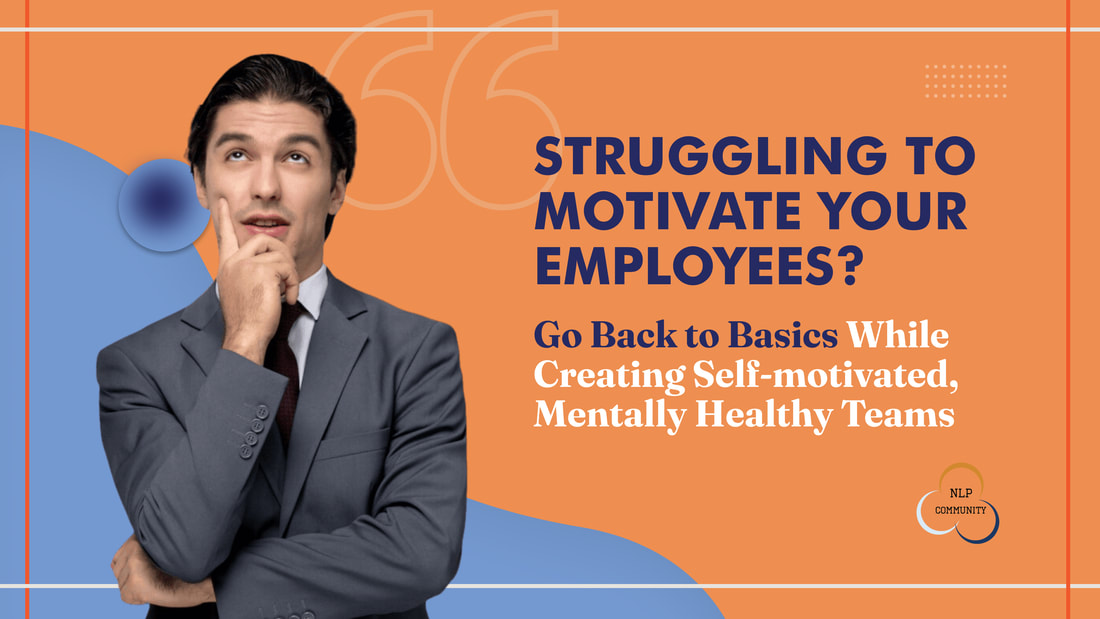





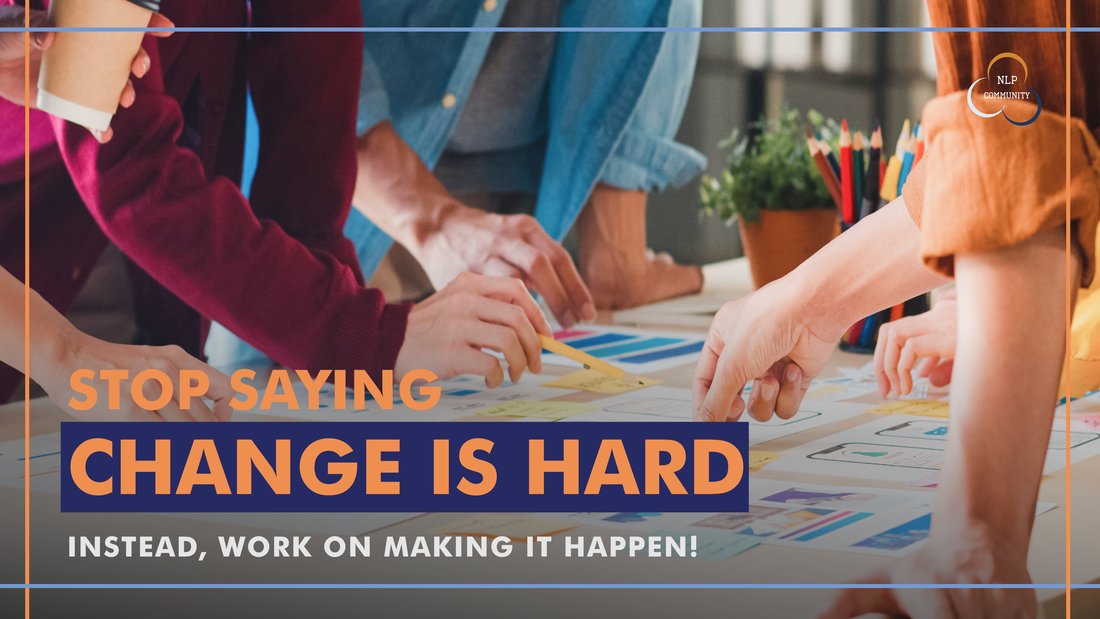
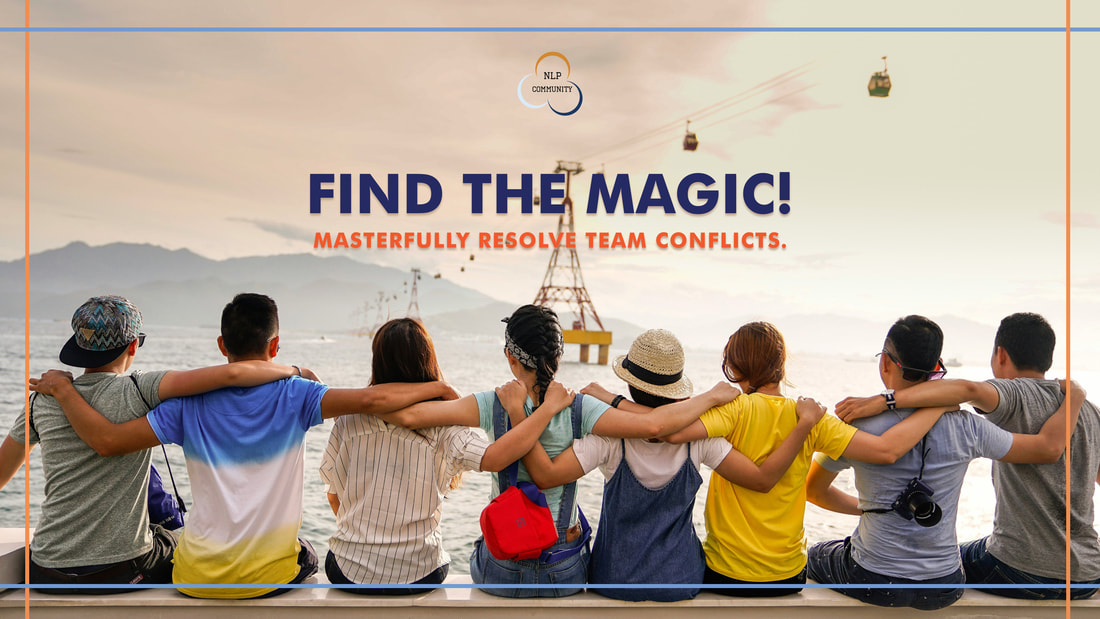
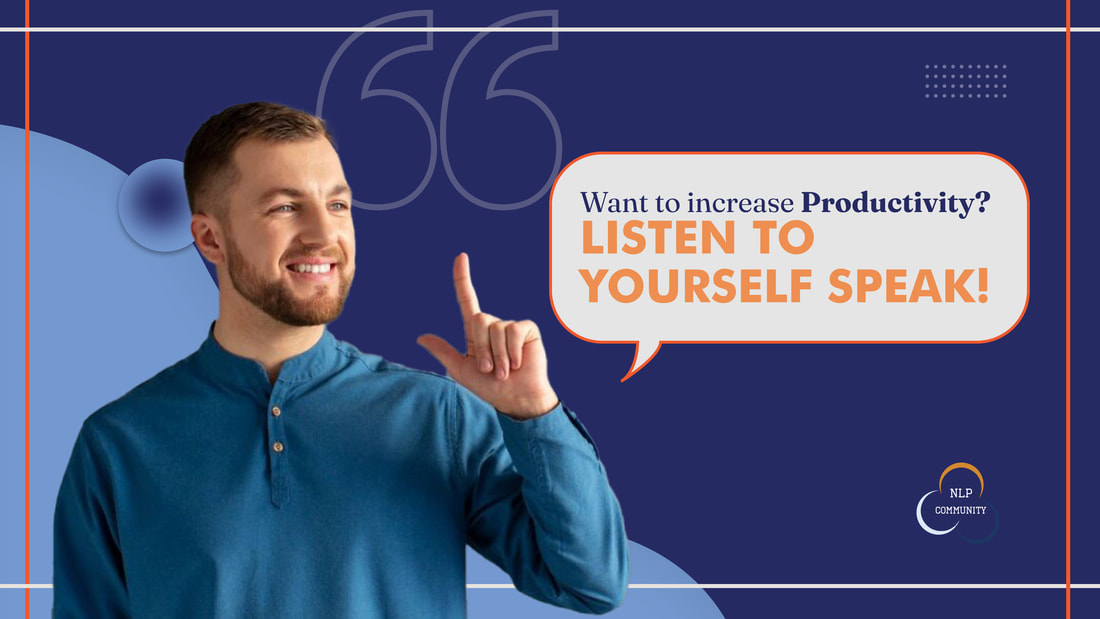





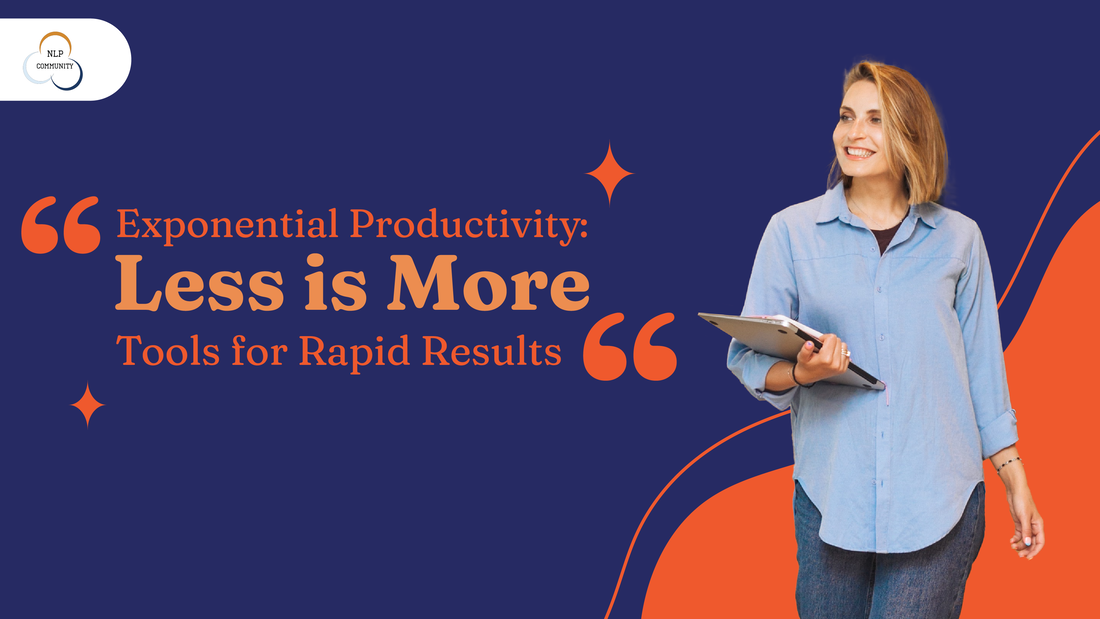


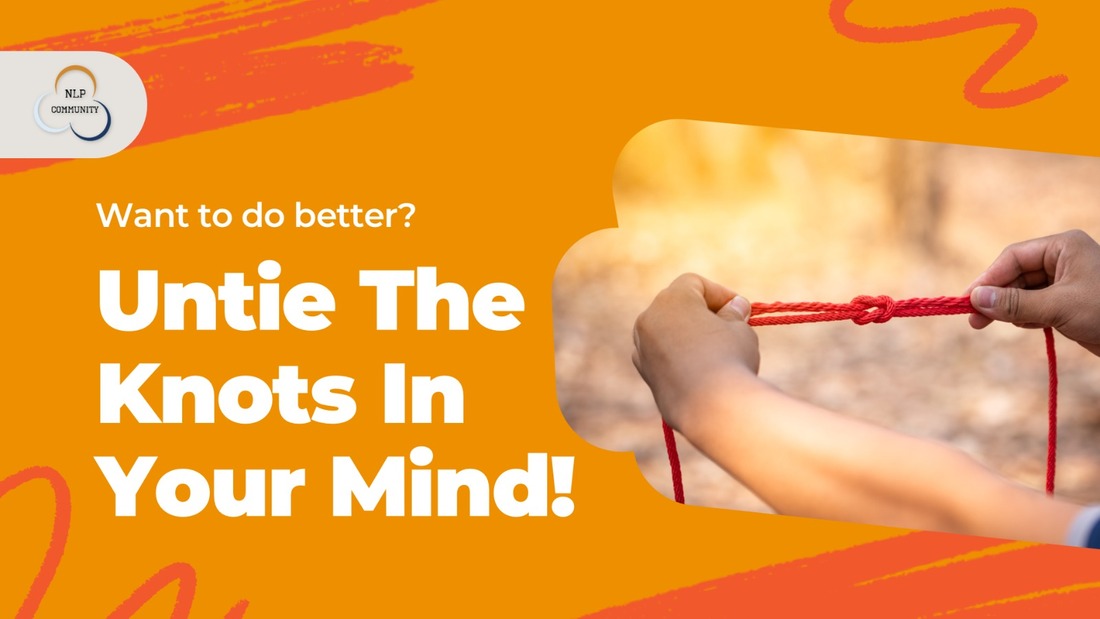
 RSS Feed
RSS Feed





